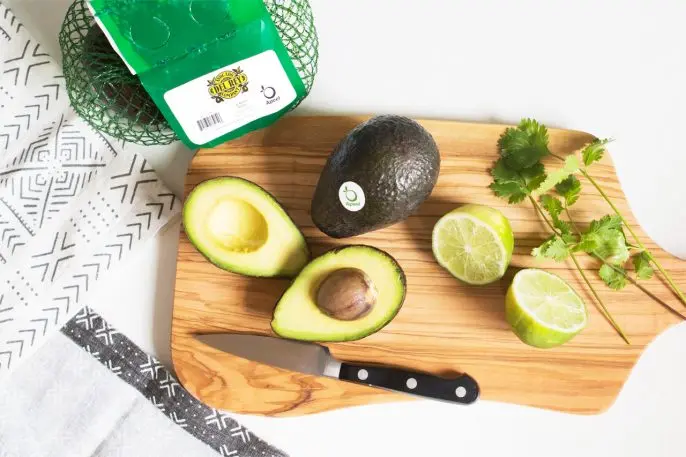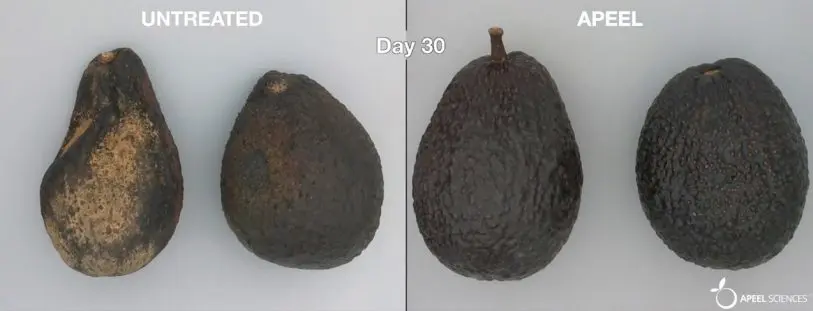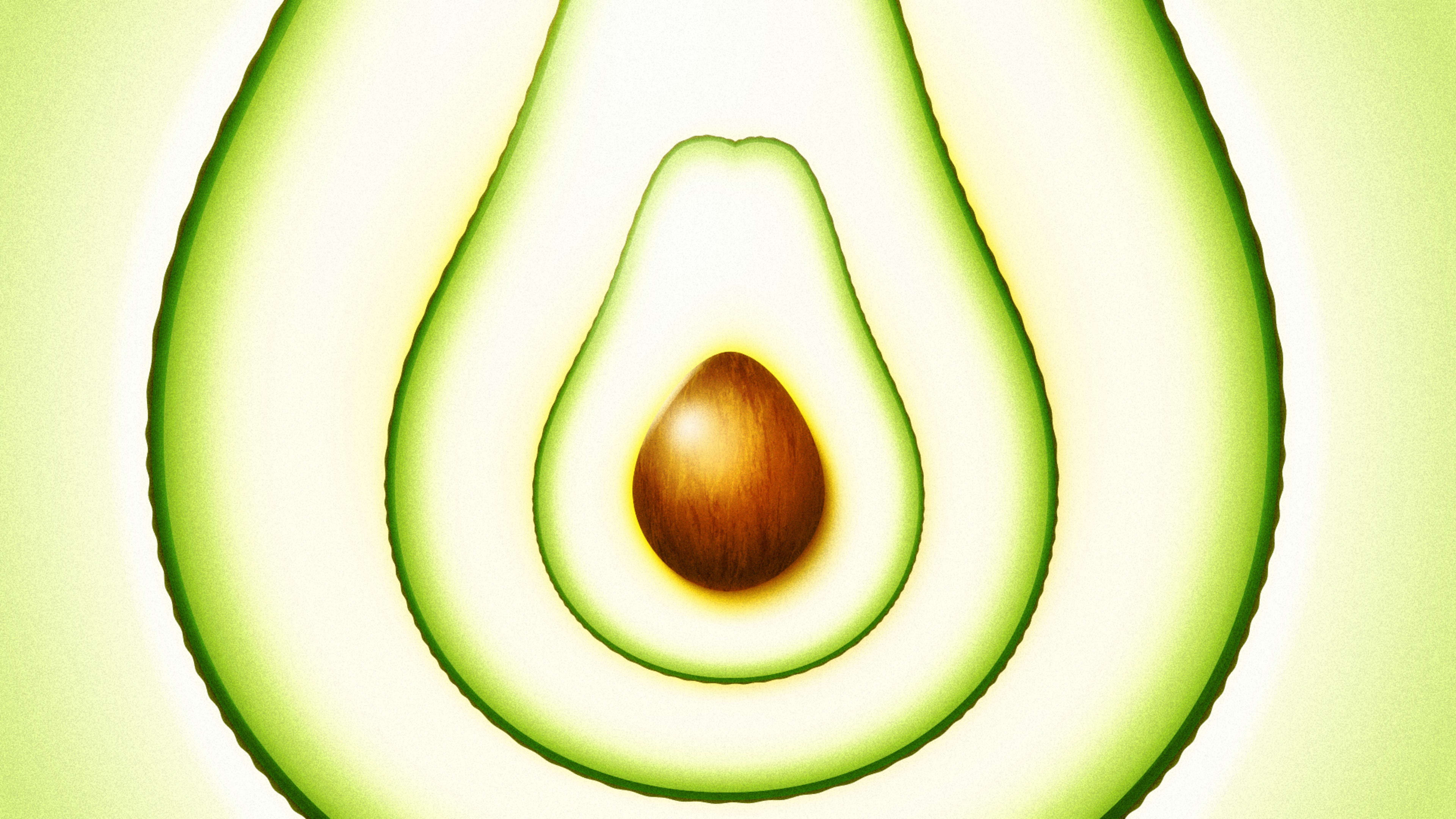When you walk into a Costco in the Midwest, you’ll see a heap of avocados for sale. This is not unusual: Avocados are ubiquitous these days, and have even surpassed the classic apple in popularity. In the Midwest, though, they’re not always great. They have to travel a long way from California, where they’re primarily grown, and often arrive rock solid and under-ripe, only to almost immediately spoil (by now, you are likely familiar with this meme).
But these avocados that you see in Costco now are different. They’re coated with Apeel–an invisible, plant-derived second skin that doubles or triples the amount of time produce stays fresh. Apeel Sciences, which CEO James Rogers founded in 2012, has attracted interest and investment from the Bill and Melinda Gates Foundation and Andreessen Horowitz, among others, and this partnership with Del Rey Avocado Company and Costco (as well as Harps Food Stores, a smaller Midwestern grocery chain) is the first time Apeel-coated produce will hit the mass consumer market.

The partnership with Costco, Rogers says, perhaps best showcases what Apeel can do. “Costco has arguably some of the highest produce standards among retailers, and its customers buy in bulk. They’re looking for both quality and value and that’s what we’re able to provide.” And the Midwest launch is designed to show how Apeel can bring better-quality produce to regions that can’t necessarily grow it themselves.
The way Apeel works is by slowing the rate at which water evaporates out of the produce and oxygen seeps in–the two main causes of produce spoilage. Every piece of produce has a peel or skin that protects it, but all are different: The skin of a blueberry, for instance, is much thinner than that of an orange or banana, and their freshness windows vary accordingly. Apeel just adds a bit to that existing peel. “You can’t see it, taste it, or feel it, but it’s there,” Rogers says, holding up a perfect-looking, Apeel-coated plum that’s been off the branch for eight weeks. Next to it, its uncoated twin looks like a raisin.
The Apeel product essentially consists of plant-based lipids that naturally exist in the peels and seeds of produce. To distribute the coating to produce farmers and distributors, the Apeel team distills these lipids down into a powder for easy transport. “For smallholder farmers, we send them something that looks like a sugar packet–they mix it with water and either spray it or dip the fruit into it,” Rogers says. For larger-scale growers, Apeel Sciences offers an application system that can coat hundreds of tons of produce in a minute. Of course, integrating Apeel comes at a cost to growers, but its one that could potentially be recuperated through stronger sales and more consistent product quality.

Refrigeration is currently the way the produce industry manages to keep spoilage at bay as it ships fruit around the country, and even the world. “In the produce industry, what you hear is: The cold chain, the cold chain, the cold chain, and by the way, did I mention the cold chain?” Rogers says. It is effective–if you decrease the temperature in the environment surrounding the fruit, you essentially slow down the rate at which the fruit evaporates and oxidizes.
There are several issues with leaning so heavily on refrigeration. For smallholder farmers–especially those in remote parts of the world–it might be unavailable or too expensive to access. From an environmental perspective, it’s unsustainable: refrigeration systems require a lot of energy to run. “And while refrigeration has largely addressed the transportation and storage element, it’s exactly at odds with the optimal merchandising conditions—well-lit, comfortable, out in the open–for produce,” Rogers says. “You don’t want to put on a parka and walk into an industrial refrigerator to shop for fruit.”
When Apeel is sprayed onto a piece of fruit “it creates this optimal little microclimate inside each individual piece of produce,” Rogers says. It doesn’t necessarily do away with the need for refrigeration–to ship avocados from California to Minnesota, for instance, the cold temperatures will still be necessary—but the coating ensures that when the produce does reach its final destination on a store shelf, it will be able to last there much longer, and the person who buys it will have anywhere from double to quadruple the amount of time to use it. That is significant: Americans throw away roughly 400 pounds of food per person each year, often due to perceived spoilage. Not only will more shelf-stable produce save people money (those pounds add up to around $1,800 for a family of four) but will also dramatically reduce the amount of food waste sent to landfill.
Not only could Apeel help end the prevalence of food deserts by making produce longer-lasting and more practical from a stocking perspective, Rogers thinks it may also have an effect on the way grocery stores are laid out. “The benefit for retailers is that they can expect a dramatic reduction in shrink and spoilage, but also for the first time, they can reimagine where they locate produce in the stores,” he says. Currently, produce is aggregated in one section, usually at the edge of the store (Rogers refers to this as the “fresh perimeter”) to both keep them slightly refrigerated and to allow easy access for the produce clerks who have to constantly rotate supply as fruits go bad. If produce is coated in Apeel, though, it will last longer on standard shelves, and allow store designers to integrate produce offerings throughout the store. This potentially has implications for encouraging healthier eating. One day, then, it might not be unreasonable to be able to pick up some avocados to make guacamole while browsing the chip aisle.
Recognize your company's culture of innovation by applying to this year's Best Workplaces for Innovators Awards before the extended deadline, April 12.
